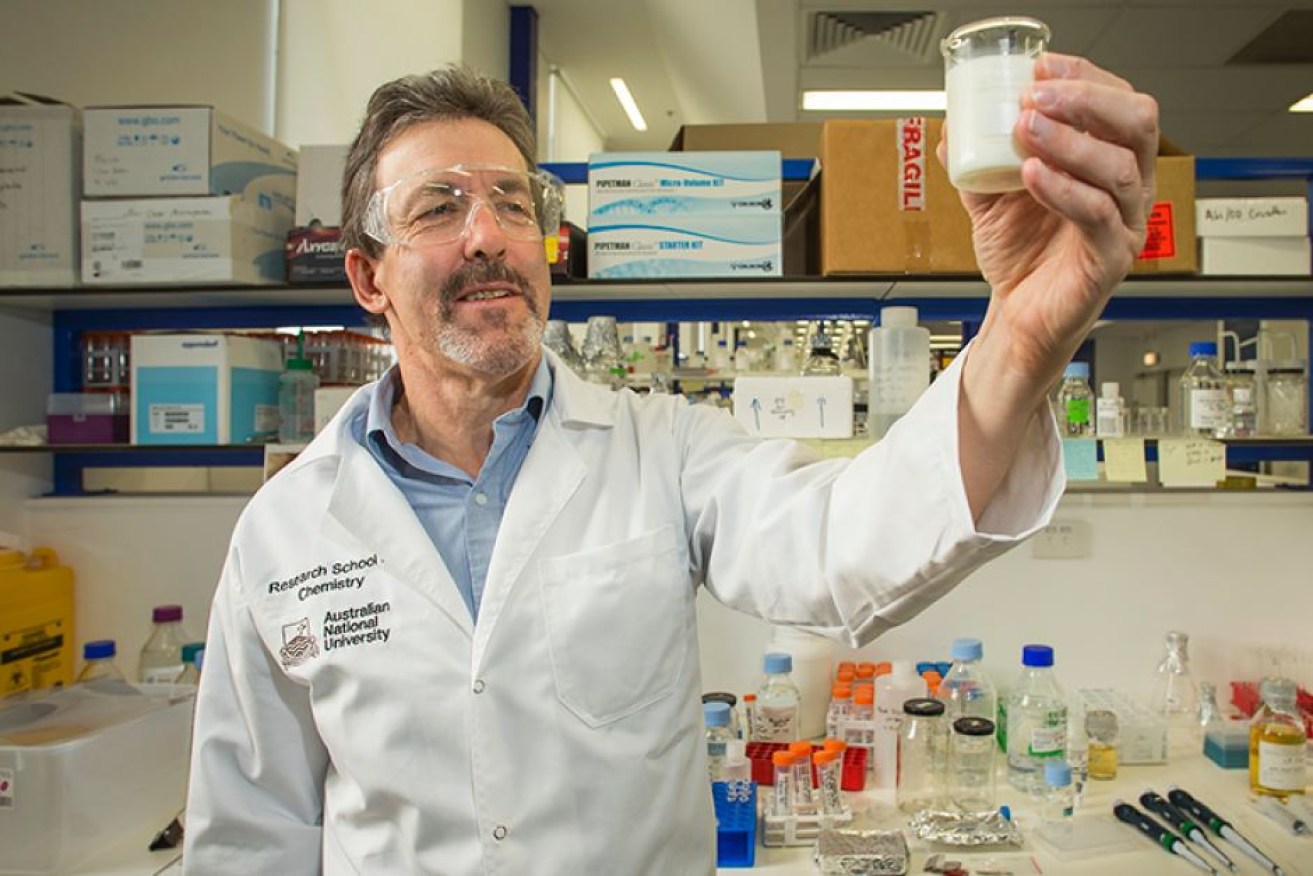Stopping long-life milk going bad could help cure Alzheimer’s

ANU's Professor John Carver is leading the study on amyloid fibrils in UHT milk. Photo: ANU
A study into why long-life milk goes bad could hold the key to better understanding — and perhaps preventing — age-related diseases in humans, like Alzheimer’s, Parkinson’s and type 2 diabetes.
The research, by a team of Australian and international scientists, found the gel that formed when ultra-high temperature (UHT) milk was left out for long periods of time was similar to plaque deposits that can occur in the human body and cause some diseases.
Researchers found two unrelated proteins in UHT milk joined together over a period of months to form clusters called amyloid fibrils, causing the milk to transform into a gel.
Professor John Carver from the Australian National University said the same type of protein clusters were found in plaque deposits that form on the brain in cases of Alzheimer’s and Parkinson’s.
Amyloid deposits are also commonly found in the pancreases of people with type 2 diabetes.
“It’s a well-known phenomenon that if you leave UHT milk around on the bench for a few months it will form a gel and it obviously leads to the inability to use that milk,” Professor Carver said.
He said if scientists could stop UHT milk going bad and forming the protein clusters, it could one day translate to a cure for human diseases.
“Many people are targeting these diseases, obviously, and the process of amyloid fibril formation,” he said.
“One way to prevent the disease from developing is to stop the formation of these plaque deposits.
“There’s lots of interest in what causes the formation of these amyloid fibrils, but also their prevention.”
No link between disease and drinking UHT milk
UHT milk is made by heating milk to 140 degrees Celsius for a short period of time.
Professor Carver said it was this process that resulted in the separate milk proteins that could combine to form clusters.
He said the individual proteins were not present in regular cow’s milk because it was pasteurised at a lower temperature.
But Professor Carver said the solution was not as simple as not drinking long-life milk.

The discovery could unlock treatments for the elderly
“The research does not suggest UHT milk can cause these age-related diseases,” he said.
“UHT milk only develops these types of aggregates after long-term storage.
“Of course in standard pasteurised milk there’s certainly no problem with the formation of amyloid fibrils.”
He hoped millions of deaths each year could be prevented by learning the cause of the protein clusters.








